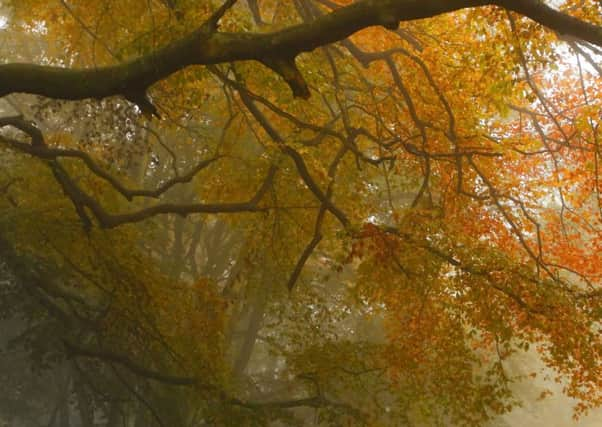How to capture the colours of autumn on camera


To celebrate the beauty of the outdoors, the RHS is urging budding photographers to brave the cold, venture outside and be inspired by nature to capture beautiful gardens.
With this in mind, acclaimed garden photographer Marianne Majerus, who has illustrated more than 200 books, offers the following tips on how to get the best pictures of autumn:
:: Spot spider webs
Advertisement
Hide AdAdvertisement
Hide AdDon’t sweep away spider webs this autumn. Consider incorporating them into your photographs, as they can add a sense of mystery, particularly to Halloween-themed photos. At dawn on sunny autumn days, flowers and foliage will be dotted with dew and cobwebs. If there is little or no wind, you will have time to compose your images and won’t have to change aperture to compensate for subject movement. When photographing spider webs, experiment by including more details in the frame to add context or create a focal point by capturing a spider.
:: Get creative with seasonal fruit
Keep your eyes peeled for seasonal fruit and berries which might make great close-up shots. Wild berries can make inspiring subject matter, with their voluptuous forms and the strong colour contrast between the leaves and the fruit, adding dramatic tension to photographs. Include more detail, such as the path where they are found and their surroundings, which adds a story to your photograph. Autumnal forests can have a magical ambience which can produce fairytale images.
:: Play with autumn light
Make the most of the beautiful misty morning light, which gives this season its character. To avoid camera shake when the light is low, try propping the camera against a tree trunk or alter your ISO rating to achieve sharper images. As with most photography, the nature and direction of light falling on a subject is crucial. Soft, side-lighting will give good modelling, while keeping shadows delicate, whereas stronger, low-angled side-lighting is good for emphasising the texture of bark and leaves.
:: Look out for back-lit leaves
Back-lit leaves, whose colours and cell structure are enhanced by the sun, can offer great subject matter and create strong graphic images. When photographing close-up flowers or leaves, do not fixate on the subject to the extent that you forget the background. Try using the depth of field preview lever on your camera to see what is visible behind your subject and consider using a larger aperture to make out-of-focus background. Try moving around a subject to find a pleasing background.
:: Discover garden wildlife
Advertisement
Hide AdAdvertisement
Hide AdMild autumn weather can offer the perfect opportunity to seek out garden wildlife including hedgehogs, birds and insects to create stunning images.
To attract wildlife to your garden, sprinkle food such as seeds, nuts and fruit on designated patches of grass or use feeders, which work particularly well for birds.
:: Entries to this year’s RHS Photographic Competition, open to both amateurs and professionals, can be submitted online until February 28, 2017.
For details, visit www.rhs.org.uk/Promotions/rhs-photo-competition